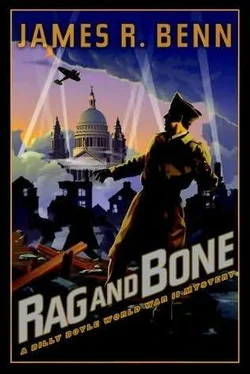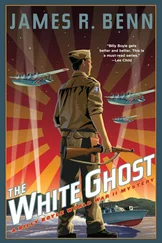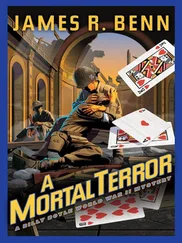James Benn - Rag and Bone
Здесь есть возможность читать онлайн «James Benn - Rag and Bone» весь текст электронной книги совершенно бесплатно (целиком полную версию без сокращений). В некоторых случаях можно слушать аудио, скачать через торрент в формате fb2 и присутствует краткое содержание. Жанр: Шпионский детектив, на английском языке. Описание произведения, (предисловие) а так же отзывы посетителей доступны на портале библиотеки ЛибКат.
- Название:Rag and Bone
- Автор:
- Жанр:
- Год:неизвестен
- ISBN:нет данных
- Рейтинг книги:4 / 5. Голосов: 1
-
Избранное:Добавить в избранное
- Отзывы:
-
Ваша оценка:
- 80
- 1
- 2
- 3
- 4
- 5
Rag and Bone: краткое содержание, описание и аннотация
Предлагаем к чтению аннотацию, описание, краткое содержание или предисловие (зависит от того, что написал сам автор книги «Rag and Bone»). Если вы не нашли необходимую информацию о книге — напишите в комментариях, мы постараемся отыскать её.
Rag and Bone — читать онлайн бесплатно полную книгу (весь текст) целиком
Ниже представлен текст книги, разбитый по страницам. Система сохранения места последней прочитанной страницы, позволяет с удобством читать онлайн бесплатно книгу «Rag and Bone», без необходимости каждый раз заново искать на чём Вы остановились. Поставьте закладку, и сможете в любой момент перейти на страницу, на которой закончили чтение.
Интервал:
Закладка:
“Oh, when one of his friends-his dear friends, you know-when one of them got killed, he’d be in an awful state. Terrible. Took its toll on him, it did, all those pals of his buying it. But he kept me alive, even though there were times I’d pray for a quick bullet. Do you know his poetry, boy? Likely not, likely not. I read it still, his war stuff, I mean, when the bombs fall. Makes me feel better, remembering where I’ve been, and survived. Now listen, and you’ll know what I mean.” He pushed his glass toward Topper, who added a splash and sat back.
He read from the book, poems about rotting corpses, mud, machine guns, and death. He read between slugs of gin, and his voice rose, until the book fell from his hands and he recited a final paragraph, his face turned upward, eyes searching the ceiling for ghosts, flares, or perhaps a glimpse of heaven. Alone he staggered on until he found Dawn’s ghost that filtered down a shafted stair To the dazed, muttering creatures underground Who hear the boom of shells in muffled sound. At last, with sweat of horror in his hair, He climbed through darkness to the twilight air, Unloading hell behind him step by step.
I sat in stunned and gin-soaked silence as he finished. The room beyond, and all the people in it, were quiet, hushed, as if in church at the end of a magnificent sermon. Archie’s eyes were half open, but I knew he was somewhere else, somewhere beyond drunkenness and memory, someplace I never wanted to see, a place worse than hell, that place I’d glimpsed in my own father’s eyes. The trenches.
I stood, glancing at the books on his shelf. All poetry, the big English poets-Blake, Wordsworth, and others I’d never heard of. Americans like Walt Whitman, Emily Dickinson, and Poe. But it was the volume of Sassoon that was dog-eared, scarred with bookmarks and notations, open on the floor. Topper rose and took me by the arm, guiding me out, into the open space.
“Don’t come back, if you know what’s good for you.” He said it quietly, not a threat, more as a wishful entreaty, a desire for someone to escape the repeated misery of a father’s wartime memories. Charlie returned my revolver, and I walked out of the siding, hardly aware of the faces gazing at me.
I made my way upward. The bombing had stopped, and as I came to the surface it seemed like bright daylight. I squinted against the light and saw it was a raging fire, enveloping a building farther down Liverpool Street. Fire engines pumped streams of water that disappeared into the inferno as I made my way around the wreckage that had spilled out into the street. Firemen snaked hoses around burning timbers as ambulances stood in the rosy, flickering light, their rear doors open, beckoning the injured. Beyond, bodies lay in a row where the sidewalk was clear, dust coating them a uniform gray, their corpses merging into a single lump of shattered flesh and torn clothing. It was the ARP warden I’d talked to on my way in, along with the mother and two small children he’d been helping.
I stumbled out into the street and broke into a run, not knowing where I was going.
CHAPTER ELEVEN
I’d decided to join Kaz on his early morning trot through Hyde Park. I wanted to sweat out the stink of gin and poetry that clung to my skin and clogged my brain like a foul nightmare. My head was thick with the smell of smoke I’d inhaled from the fires, the hangover I’d awoken with, and the confusion I felt as I tried to sort through what I’d learned.
I filled Kaz in on my trip to the shelter and the strange interview with Archie and Topper Chapman. Archie’s alcohol-fired poetry reading, the sharp blade to my throat, Topper’s warning, the home-away-from-home setup in the tunnel, it was all strange enough. But what I really didn’t get was their entire lack of interest in Gennady Egorov.
“It doesn’t make sense,” I said, trying to draw in enough breath to speak and keep up with Kaz. “They were interested in doing business if I had something to offer, but they didn’t give a hoot about Egorov.”
“If the Russian had been their source of information, there would be nothing you could do to replace his services, at least in terms of hijacking Russian supplies. Why should they show any interest?”
“Because Archie didn’t strike me as the kind of guy to let anyone get the best of him. Whoever killed Egorov hurt his business. That’s not something any crime boss in Boston or London would let slide.”
“Yes, I see,” Kaz said. “He can’t afford to appear weak.”
“Which means that he already knows who did it, or that Egorov wasn’t the primary source of his information.”
“You mean someone else in the embassy?”
“Yeah. Or Archie already took care of things. Maybe the guy who pulled the trigger is floating facedown in the Thames right now.”
“Perplexing indeed,” Kaz said, raising his head to check the sky. “Cloudy today. Bad bombing weather.”
“I could do without another night of that,” I said. “Why do you think they came back?”
“The Germans? Because we didn’t expect them.”
“Archie Chapman did.”
“From what you told me, Archie Chapman still expects the Boche to charge across No Man’s Land. Do you think someone as crazy and bloodthirsty as he really reads all that poetry?”
“Yes, I do. He may be nuts, but he’s not unintelligent, and he came under his captain’s influence at an early age. He’s been cultivating everything he learned in the trenches since then. Cruelty, killing, and the beauty of words. Maybe they balance each other out, who knows?”
“Maybe he’s just crazy,” Kaz said.
“Strange, coming from a guy as comfortable with books as he is with a gun.”
“Poets are mad. Scholars are merely preoccupied.”
“Mad Jack,” I said. “That’s what they called Sassoon, according to Archie.”
“He went off his head after his brother was killed at Gallipoli,” Kaz said. “Tried to get himself killed, I’ve heard, but ended up coming back alive each time he went out on a raid.” We turned at the end of Rotten Row, slowing our pace a bit. I thought about Diana, and her need to confront death. Kaz looked solemn, and I knew he was thinking the same thing. Diana courting death, Daphne dead and gone.
“Sorry,” he said.
“Me, too.” I laid my hand on his shoulder as he wiped the sweat from his face, both of us breathing deeply in the cold morning air. “Kind of odd, isn’t it, to think about a guy like Sassoon with Archie Chapman? What would they have had in common? Archie, from the East End, and Sassoon an educated officer?”
“He wrote a poem called ‘Conscripts,’” Kaz said. “I don’t recall all of it, but it spoke about the different kinds of men trained for combat. The educated, the sensitive, along with the rougher men, whom at first he disliked. Near the end, it went: But the kind, common ones that I despised (Hardly a man of them I’d count as friend), What stubborn-hearted virtues they disguised! They stood and played the hero to the end.”
“So he admired a guy like Archie for staying alive,” I said, “when his brother didn’t?”
“Who knows?” Kaz said. “Who knows what a poet or a madman thinks? Or a killer like Chapman? I have enough trouble in this war without trying to ferret out the secrets of the last.”
“I’m doing my best to keep you out of trouble, Kaz. Don’t do anything to make that job harder.”
“Thank you, Billy. You are a good friend.”
I clapped Kaz on the shoulder and picked up my pace, trying not to get left behind. I remembered those words, spoken with a different accent, years ago. It had been Nuno Chagas, speaking to my dad. Nuno was a Portugee lobsterman who ran his boat out of Cohasset Harbor. He’d been a smuggler, bringing rum and whiskey in from offshore boats during Prohibition. He wasn’t a hoodlum, just the son of an immigrant, a working stiff who did what he had to do when the Depression hit and lobster became a luxury many could do without. He and Dad, along with Uncle Frank, used to go out fishing every now and then. A few bottles found their way home, but it was a favor, not a payoff. One day Nuno had a problem. A big problem. He’d made his liquor runs for the Gustin Gang, run out of Southie by Frankie and Steve Wallace. The Wallaces weren’t saints, but they were local Irish boys, and they robbed other thieves as much as they robbed anyone else. They were connected politically, and while they were arrested frequently, charges had a way of being dropped. I guess they were tolerated. Nuno had no beef with them, but a rival outfit was trying to elbow its way in, aiming at taking over the Boston liquor market. It wasn’t the Italians, and no one could prove the rumor that it was Joe Kennedy, making a buck however he could. But that didn’t matter. Goons from out of town were threatening guys like Nuno, and the Gustin Gang threatened right back. Each side wanted Nuno to work for them. Or else… I was only a kid at the time, but I remember Nuno coming over to the house on Sunday, dressed in a suit that was worn to a shine. He’d thanked my father, and told him what a good friend he was. Dad said, My friend’s troubles are my own, and then Nuno stayed for Sunday dinner.
Читать дальшеИнтервал:
Закладка:
Похожие книги на «Rag and Bone»
Представляем Вашему вниманию похожие книги на «Rag and Bone» списком для выбора. Мы отобрали схожую по названию и смыслу литературу в надежде предоставить читателям больше вариантов отыскать новые, интересные, ещё непрочитанные произведения.
Обсуждение, отзывы о книге «Rag and Bone» и просто собственные мнения читателей. Оставьте ваши комментарии, напишите, что Вы думаете о произведении, его смысле или главных героях. Укажите что конкретно понравилось, а что нет, и почему Вы так считаете.












